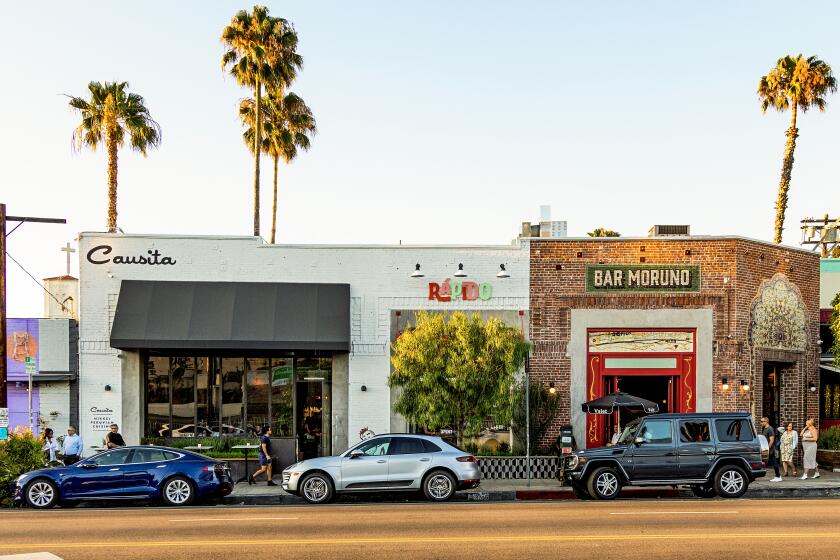
- Share via
The unmistakable stench of rotting food filled the space formerly occupied by chef Matthew Kenney’s trendy Venice restaurant, Plant Food + Wine.
It was coming from the walk-in refrigerator, where spoiled sprouts, garlic and other vegetables had been left to fester after Kenney — an acclaimed vegan chef and cookbook author — closed the restaurant in May.
Plant Food + Wine had been the flagship of Kenney’s culinary empire, which, by one count, included more than 50 eateries in a dozen-plus countries as of spring 2022. A fixture on social media, the Abbot Kinney Boulevard restaurant was a favorite of lifestyle influencers who touted dishes such as Kenney’s signature raw lasagna with heirloom tomatoes and zucchini.
Now, that was all gone. Kenney’s restaurant had been evicted. But even as the produce moldered at the closed vegan eatery, he was opening a new version of Plant Food + Wine at the glitzy Four Seasons Hotel near Beverly Hills.
Handsome, media savvy and prolific, Kenney, 59, has a knack for opening restaurants that make a splash — and then quietly close not too long after with a pile of unpaid bills. Since September 2022, six of Kenney’s L.A.-area spots have closed, among them Double Zero in Venice and Hungry Angelina in Long Beach, along with at least six others across the U.S.
“A close-down was inevitable,” said Jack Darling, a former server at Kenney’s Sestina in Culver City, which folded in July. “As soon as I started, there was a lot of talk: ‘Yeah, Matthew Kenney — every time one business goes bad, he opens a new one.’”
A pioneering raw food chef who first gained culinary fame in New York in the 1990s, Kenney, in more recent years, has shrewdly cultivated the aura of a green-living guru, making him a celebrity among the wheatgrass-sipping set. He has seemingly charmed partners — even a Saudi royal dubbed the “Vegan Prince” — despite leaving behind disgruntled investors, landlords and employees in cities across the country, from New York to Miami and L.A.
The rank mess at Plant Food + Wine only hinted at the level of disarray at the chef’s flagship company, Matthew Kenney Cuisine, and at his many restaurants.
In lawsuits and interviews with The Times, landlords, partners and ex-employees — among them managers and servers — accused Kenney and his companies of not paying millions of dollars in rent, failing to return $1 million owed to an investor, not paying restaurant suppliers for goods, and bouncing paychecks to workers.
A brutal year for Los Angeles restaurants saw dozens of closings across the city. Inflation, actors’ and writers’ strikes and higher rent, utilities and labor costs all were cited.
Kenney’s legal adversaries have alleged he uses an array of limited liability companies to shield himself from the consequences of his busted ventures, commingling funds from separate companies and diverting money for his personal use.
In a wide-ranging interview with The Times, Kenney denied several of the allegations and acknowledged some mistakes, chalking up closures to economic fallout from the COVID-19 pandemic and restaurants that “just didn’t take off” or “never worked for us.” He also said he is turning his focus to licensing his restaurant concepts to other owners and operators, and has formed a new company, Ascention Brands, to pursue this business.
“It obviously got very, very bumpy over the last year because we were slow to launch the new company, but also slow to find solutions for each location,” Kenney said, explaining that his innate optimism delayed “painful decisions” such as closing underperforming restaurants.
“After 25, 30 years of optimism, I’m not gonna operate that way anymore,” he said.
Over the course of a conversation that lasted more than two hours, Kenney also revealed he wasn’t always tracking the details of his business. In one instance, he said he’d never been to one of his now-closed L.A. restaurants. In another, he said he hadn’t read a lawsuit filed against him and several of his companies. And when asked about a news report that said he operated 50-plus restaurants as of 2022, Kenney said the number seemed high but couldn’t say how many he had then or how many he has an interest in now.
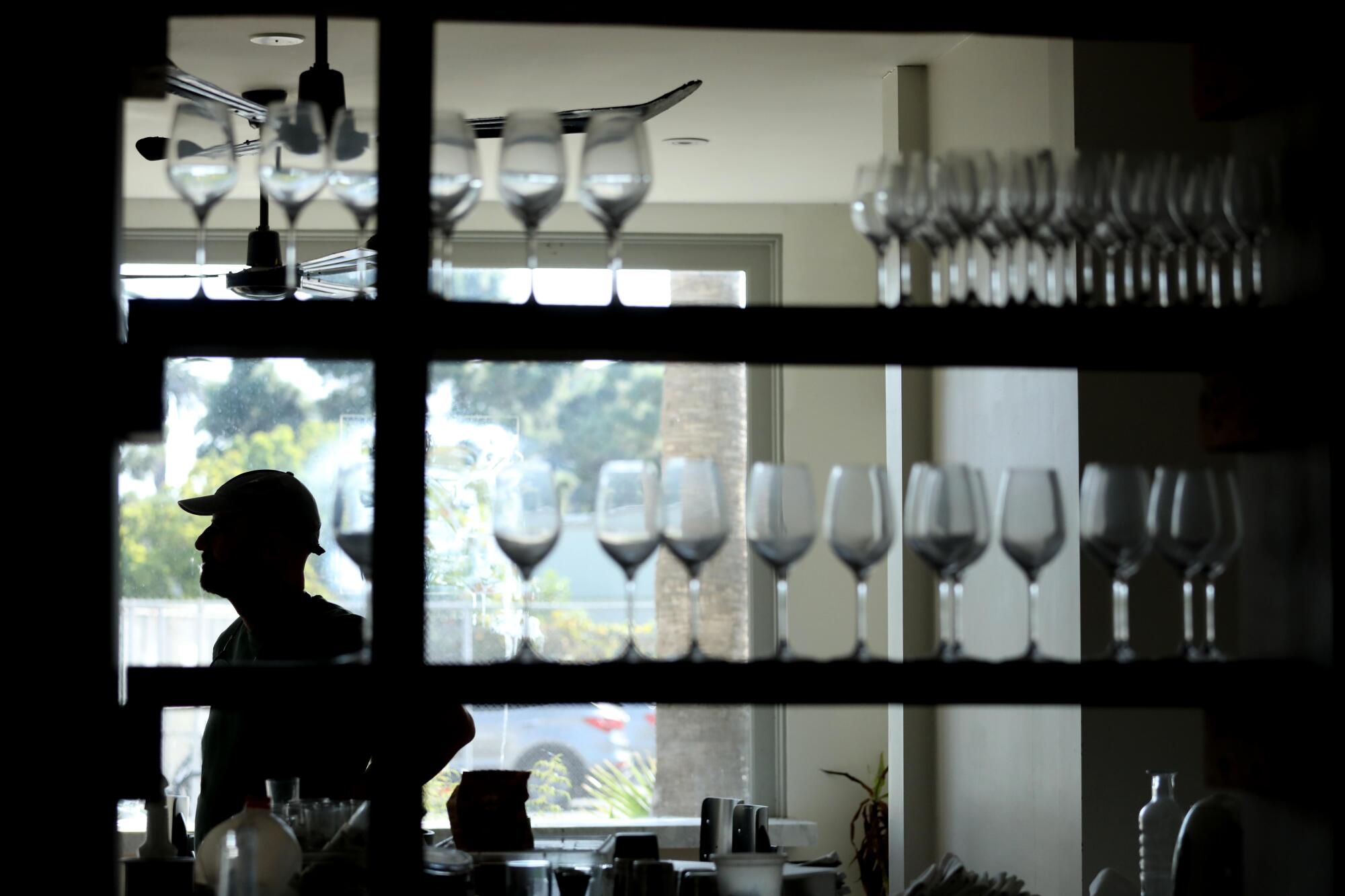
“You have to be really precise and on top of details because it is a very slim-margin business,” he said. “You have to be sometimes a little harder on people. ... I just — it’s not something I’m good at.”
Instead, Kenney — the former boyfriend and partner of Sarma Melngailis, the convicted fraudster whose downfall was documented in Netflix’s “Bad Vegan” — portrayed himself as a chef focused on creativity, and not tasks such as managing general contractors or negotiating leases.
“It’s hard to be everywhere,” he said. “It’s hard to be creative — writing the menu, writing recipes, handling media — and also manage numbers.”
Kenney strongly denied the allegations about the alleged diversion of funds: “That’s not true. ... I don’t do anything outside of the company. Not one thing.” As for the fetid provisions at Plant Food + Wine, he said that closed eateries typically smell bad “after a couple of weeks.”
Even as Kenney’s restaurants began closing in earnest in 2022, he was able to project an image of success by courting influencers and the media to put a gloss on his restaurants. His places have long drawn celebrities such as Miley Cyrus, Lenny Kravitz, Lea Michele and Christina Hendricks.
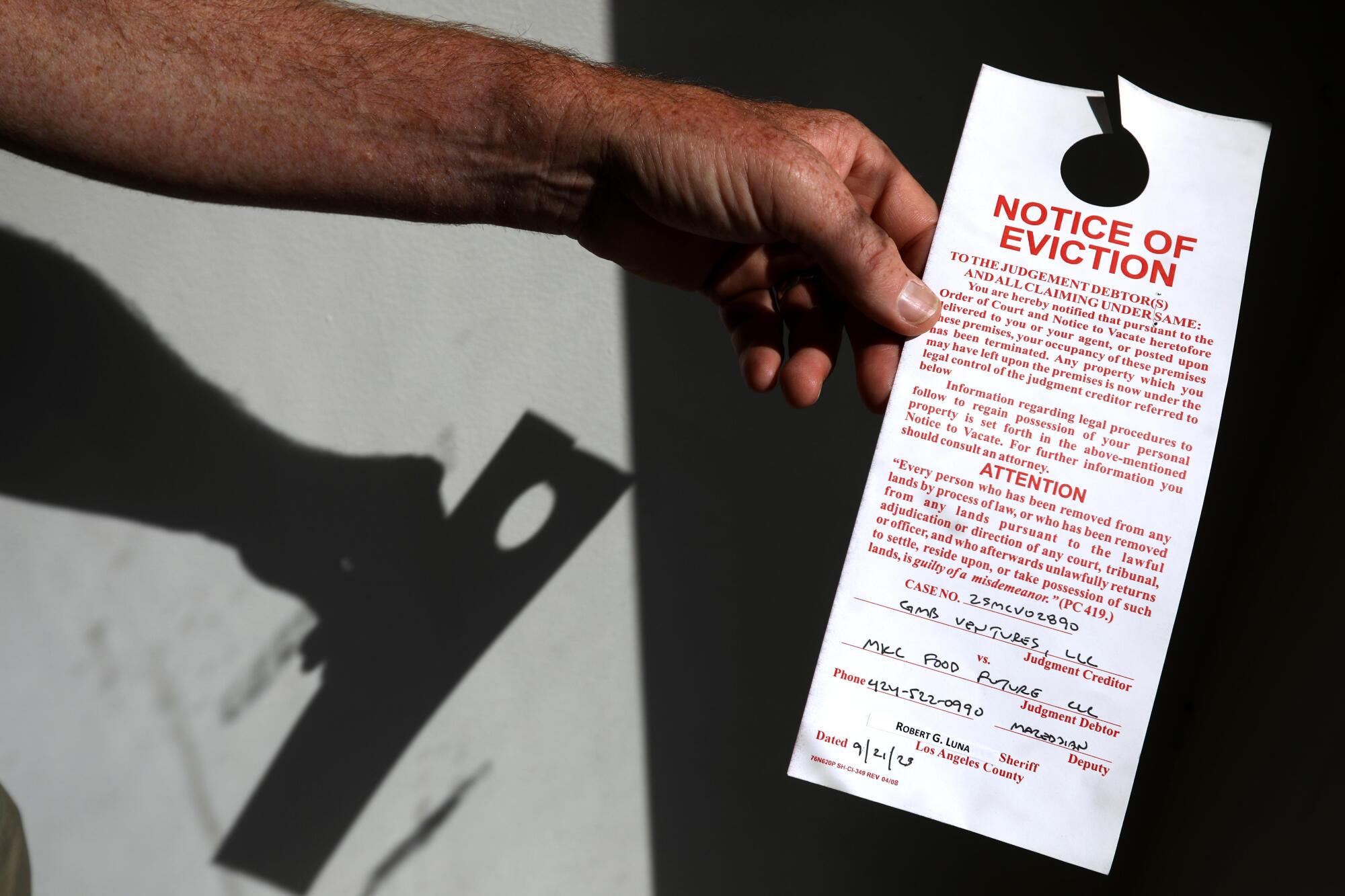
That sort of clientele is enticing to prospective investors, said Derrick Moore, a real estate broker and former restaurant analyst. Even though the odds of earning a profit on a restaurant investment are a little better than 1 in 10, for high-net-worth doctors, lawyers and others who tend to back eateries, “A huge part of the appeal is saying, “Yeah, I’m an owner,’” he said.
Miles Jenson, former West Coast regional manager at Matthew Kenney Cuisine, said that as the business foundered, influencers were key cogs in an “ecosystem of smoke and mirrors” cultivated by the chef. Jenson said the company was providing vegan, yoga and fitness influencers with up to $10,000 a year in free food while employees’ paychecks were bouncing.
“That is an inherent flaw with the company,” said Jenson, who oversaw eateries including Plant Food + Wine and quit in 2022. “It is emblematic of what is going on.”
Seven employees of Matthew Kenney Cuisine and some of the chef’s now-closed establishments said at least one of their paychecks bounced, and several noted this occurred regularly. Some described racing to the bank to cash a paycheck ahead of colleagues.
“If you waited too long it would bounce,” said Katie Hobson, a former bartender and server at Sestina. “Sometimes I would submit my paycheck the day of and [it] would bounce back and I wouldn’t get that money until the next pay period. It would be two or three weeks and I’d be scrambling.”
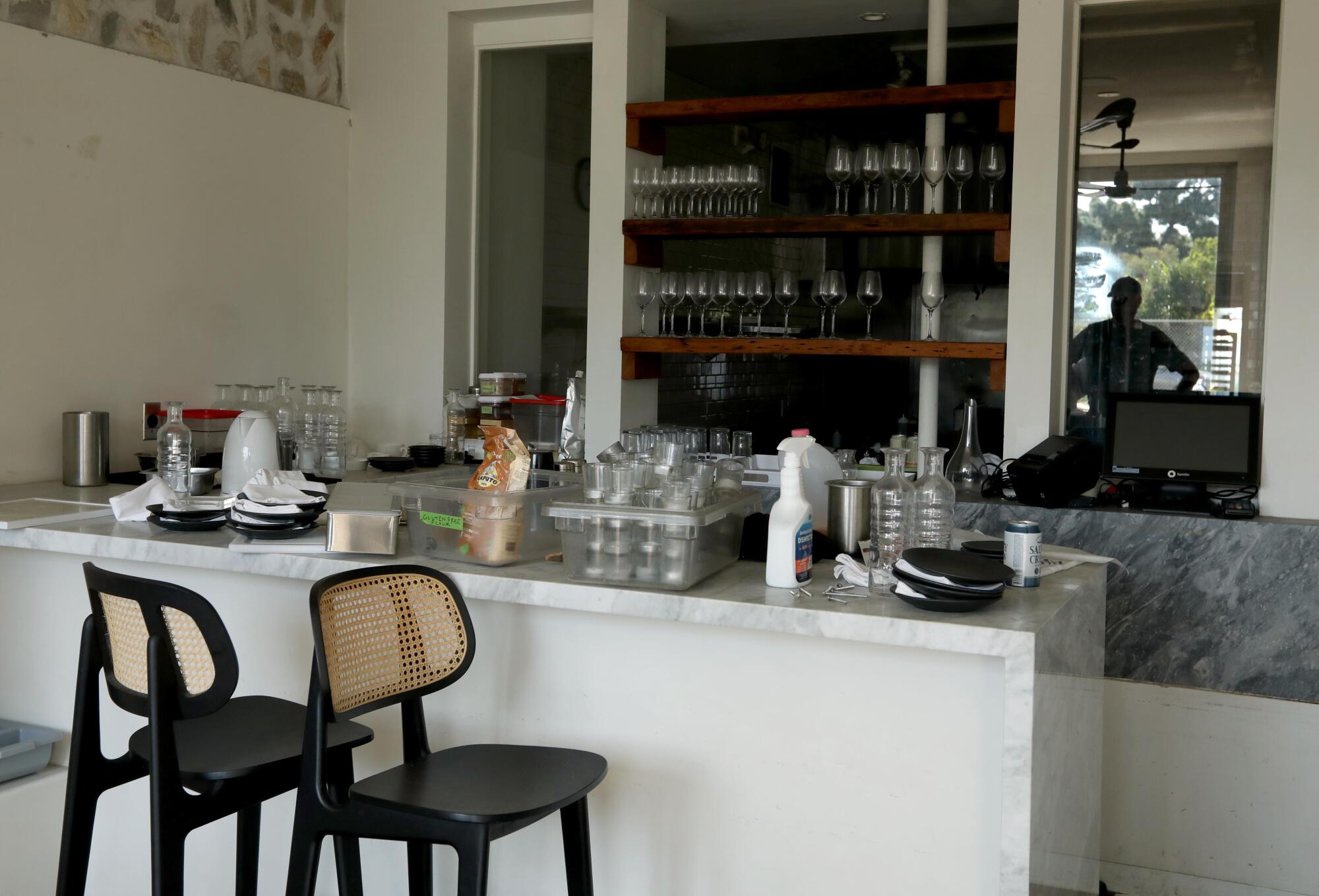
Former Sestina general manager Stacy Schlepp — who also said that influencers were allotted up to $10,000 of free food a year — recalled that a cook who sent money to his family in Guatemala was not paid for a month. “I remember fighting with executives,” Schlepp said, “and it was, ‘We don’t control the money.’ Then who the hell did?”
Kenney acknowledged that shortfalls led to bounced paychecks. “I’m aware of some of those issues,” he said, adding that partners sometimes proved unwilling to provide additional capital to address financial issues. “We put in whatever we could.” And he said that he would be “shocked” if any influencer received more than $1,000 of free food annually.
Kenney suggested The Times interview seven former and current associates. Two spoke on the record. Philip Gay, a restaurant industry executive serving as a financial advisor to Kenney, called him “a wonderful chef and an artisan” whose ventures were roiled by the pandemic. “We had to make some very hard decisions of not operating where we couldn’t pay people and we had to revamp his enterprises,” Gay said.
Kristin Addis, former vice president of operations at Matthew Kenney Cuisine, said that the chef is “incredibly resilient. He’s not afraid of failure.” When she was considering taking the job at Kenney’s company, she said, she researched him and “could tell he was not that well funded.”
Addis remembered thinking, “I don’t know how long it would last,” but decided to take a chance on Kenney, she said, because she was “passionate about working on his mission.” She joined the chef’s company in 2019 and worked there for about a year before departing.
“I wanted more stability,” Addis said.
An ‘empire builder’
Raised in a small town in Maine, Kenney was a pudgy kid who, according to his 2015 autobiography “Cooked Raw,” loved sugar and hated vegetables. That is, until a friend mocked his belly one day at a swimming pool.
The teasing prompted Kenney to swear off sugar and junk food. He became a gym rat in high school and picked up a cocky swagger.
Kenney landed a summer bartending job in a resort town after graduating from college because, he wrote, the boss thought he looked like Tom Cruise in “Top Gun.”
He came to New York in his 20s and found a job as a waiter in an upscale restaurant before training at the French Culinary Institute and opening Matthew’s in 1993. Far from vegan, the restaurant featured venison with juniper and dates, and charcoal grilled lobster with risotto.
Ruth Reichl, restaurant critic at the New York Times, loved Kenney’s linguine with chanterelles, calling it “a fabulous tangle of white beans, bacon, herbs and mushrooms.”
A year later, Food & Wine magazine named Kenney to its annual Best New Chefs list. It was a heady time, Kenney said, though he was focused on his career. “I didn’t take a day off for a year,” he said. “It was fun, fast.”
At Matthew’s, though, Kenney struggled to pay the bills, he wrote, owing the landlord — Donald Trump — more than $100,000 in back rent. Kenney said he met with Trump Organization executive Allen Weisselberg, who would plead guilty to tax fraud in 2022, and worked out a deal to retire the restaurant’s rental debt.
Matthew’s closed in 2000 after an electrical fire. Around this time, Kenney opened several other restaurants in New York, among them Canteen and Commune. But amid reports of unpaid taxes and troubled partnerships, none lasted. Kenney said some closed because of the economic downturn triggered by the 9/11 attack. But he said there was another issue: “They failed because they didn’t have the soul that my first restaurant had.”
It was time for a reinvention. In the early 2000s, Kenney became a raw food devotee. His transformation occurred around the time he started dating Melngailis, a chef with whom he opened Commissary in the space that previously housed Matthew’s. At a friend’s insistence, the couple tried a raw food restaurant. Kenney was smitten.
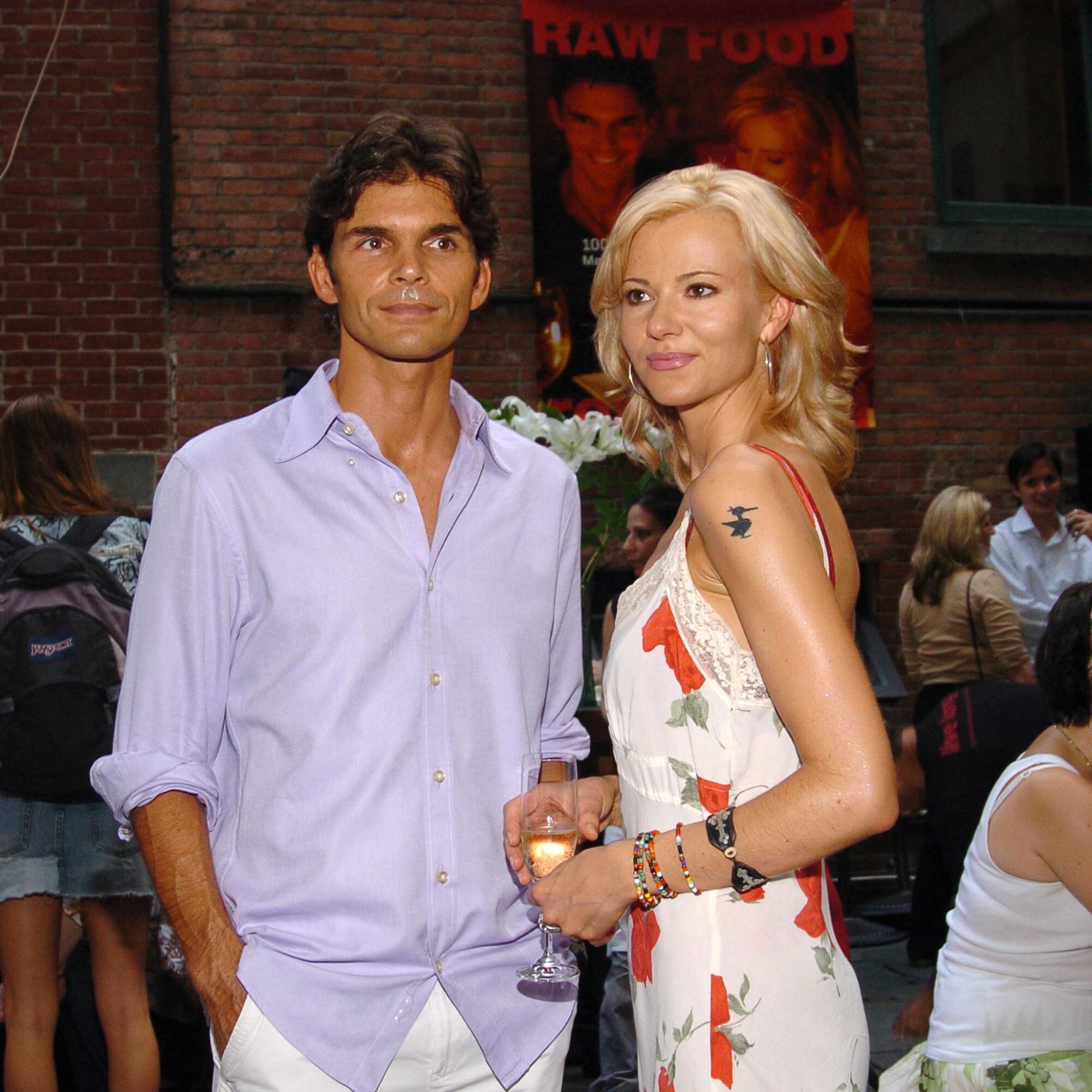
“There was no music, no wine, and the food had all these funny names,” he said. “It was pretty rough — the food — but everybody there was so healthy. ... We felt great.”
Kenney and Melngailis partnered to open Pure Food and Wine in 2004. The vegan eatery, backed by high-profile New York restaurateur Jeffrey Chodorow, became a hit and made Kenney and Melngailis, both young and telegenic, the first couple of raw veganism. But they broke up a year later.
In the docuseries “Bad Vegan,” Chodorow said that Kenney called him and explained that he couldn’t continue to work with Melngailis. Chodorow had to decide which chef to support. He said that he determined Kenney to be “a very talented chef who had a bad financial history.”
“So I picked Sarma,” Chodorow said. “And I told Matthew to go, which, frankly, I think shocked him.”
Over the next half-decade or so, Kenney went on to open short-lived plant-based restaurants in New York, Connecticut and Oklahoma — the latter of which turned out to be “the wrong state for vegan” food, he wrote in “Cooked Raw.”
The chef made his L.A. debut in 2012, opening M.A.K.E. at Santa Monica Place. It lasted three years, closing after a messy legal fight between the chef and mall owner Macerich over alleged past due rent of about $360,000.
“The rent was way too much,” Kenney said. “We came to a settlement number and we paid it.”
In a review of M.A.K.E., Jonathan Gold, The Times’ late restaurant critic, called Kenney “more of an empire builder than a perfection-obsessed chef.”
Cultivating an image
Kenney has opened and closed restaurants in Los Angeles, New York, Chicago, Miami, Baltimore, Oklahoma City, tiny Darien, Conn., and even smaller Belfast, Maine.
Hospitality is a notoriously tough industry. Investors profit beyond their initial investment only about 15% of the time, said Moore, the former restaurant analyst, adding that 70% of restaurants fail within three years of opening. In Kenney’s case, half of the L.A.-area places he has closed since 2022 shut down within that time frame.


Kimchi dumplings with ginger foam and coriander, left, at chef Matthew Kenney’s raw food restaurant M.A.K.E. in Santa Monica in 2013. A variety of juices and smoothies at the restaurant, which closed in 2015. (Christina House / For The Times)
Celebrity chefs are somewhat insulated from risk. It’s a common practice for them to form a management company for each new restaurant — and serve as general partner in charge of how money is spent, said Moore, a broker at CBRE. As limited partners, investors get a share of profits only after the chef collects his management fees. But there may not be any profits after expenses are calculated.
If a restaurant doesn’t catch on, big-name chefs are often quick to move on to another group of investors, Moore said.
“If things don’t seem like they’re panning out in the first six or eight months, unfortunately that chef has already planned his or her exit,” he said.
Kenney has long relied on an array of limited liability companies — The Times counted more than 15 with ties to the chef — to own and operate restaurants and other projects. It’s a common structure: LLCs generally protect members’ personal assets from legal judgments and creditors’ claims.
But a recent lawsuit filed by a restaurant-supply wholesaler that said Kenney and several companies owed it tens of thousands of dollars alleged that the chef “and the other … defendants formed various business entities for the sole purpose of preventing lawsuits against them when they failed to pay their duly incurred debts.”
The defendants denied the allegations, according to a court filing. Regarding his use of LLCs, Kenney said, “That’s how everybody advises you to do it.”
By 2016, Kenney was boasting in a Forbes.com story that his restaurant and hospitality business would generate revenue of $15 million over the next year.
“He’s done an amazing job at marketing himself as a personality and holding this kind of righteous, big-money-guy facade,” said Jessica Valdez, a former manager at Plant Food + Wine in Venice.
Part of the allure is his appearance. “The guy is almost 60 years old and it felt like he was glowing,” said Ryan Solomon, a former server at Double Zero in Venice. “I could see how someone would be charmed by that.”
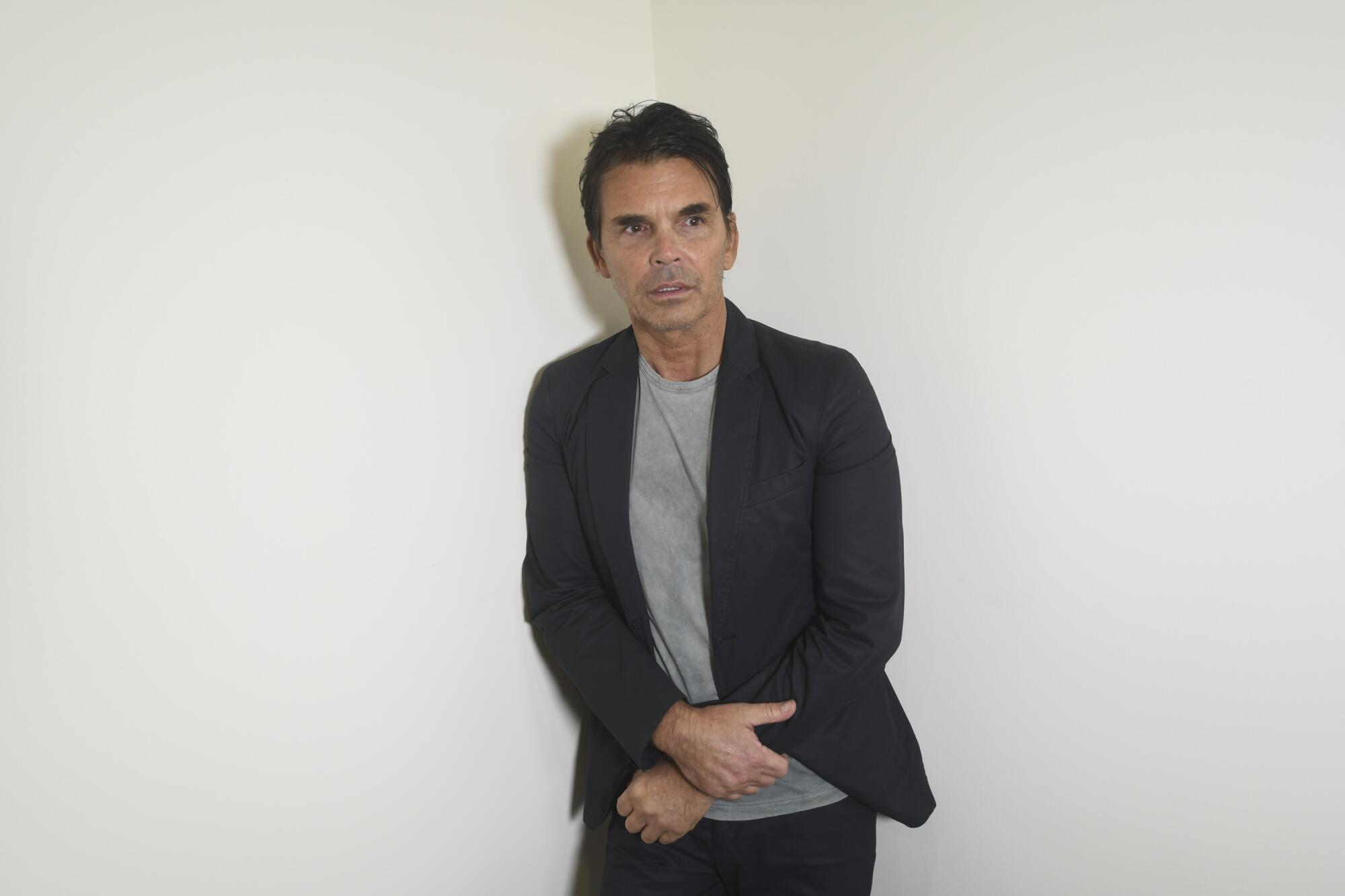
Stories about Kenney sometimes link his vitality to the sort of food his restaurants offer. “With a full head of hair, slender build and boyish good looks — he could pass for Keri Russell’s brother — Matthew Kenney is a living testament to his philosophy of cooking and eating healthful foods,” a 2020 Orange County Register story said.
Kenney said the fame is meaningless to him and “comes with a lot of expectations.”
“Yes, our business development is very robust,” he said. “But the bar of fulfilling what’s expected is probably higher than it would be for someone else.”
The social media influencers have also been key to Kenney’s promotional efforts. Former Playboy Playmate Jayde Nicole and health coach Koya Webb were among the Instagram stars who frequented Plant Food + Wine, Jenson said. They and eight others are included in a section of Kenney’s website titled “MK AMBASSADORS.” Kenney said the influencers were not required to post about his restaurants and the “goodwill” program has ended.
Webb and Nicole did not respond to requests for comment.
Endorsements from influencers “upheld this image of a prosperous vegan restaurateur,” Jenson said. “People were attracted to that.”
Some, undoubtedly, were investors. And opening new restaurants served as a kind of marketing — the debuts would get media coverage and attention from influencers — helping Kenney raise money for future projects, Schlepp said.
“Because people would say, ‘I want a Sestina in my area, here’s $100,000 to open [it],’” said Schlepp, who also oversaw a branch of Sestina in Century City that closed in 2022 after just a month or so of operation. “What they wouldn’t do is give him enough money to keep the restaurants he had open.”
L.A. issues mount
As Kenney’s L.A.-area eateries began failing in 2022, the lawsuits quickly piled up. Double Zero, in particular, became a magnet for litigation.
Kenney had envisioned the vegan pizza restaurant, which launched in New York in 2016, as a national chain. There were also plans to develop a line of frozen, take-and-bake pizzas.
Enticed by the possibilities, a company managed by real estate developer John Saca invested $1 million in the project in 2018, with an agreement that it would be repaid within 24 months, Saca’s LLC alleged in a lawsuit.
A year after Saca’s investment, Double Zero opened in Venice. It lasted four years, closing in July.
By then, Saca’s company had claimed in a 2022 lawsuit that it was not paid back the $1-million investment — and that the chef had provided the investor with “false financial information” that obscured the venture’s debts.
Kenney and two of his companies denied the allegations in a court filing.
In August, a judge overseeing the case ordered Kenney’s companies to pay $1.17 million, with the chef personally liable for about $192,000 of that sum. Saca’s LLC was also awarded a stake in one of Kenney’s companies.
The chef said that the lawsuit was “amicably settled” and he was on “good terms” with Saca — calling him a “partner” — but explained that he needed approval from the businessman to discuss the situation.
An attorney for Saca declined to comment and another did not respond to an interview request.
Saca’s lawsuit wasn’t Double Zero’s only issue. A Venice property owner filed a lawsuit against the business’ holding company in 2022 after it allegedly stopped paying rent on a Lincoln Boulevard commissary kitchen.
After the holding company failed to appear in court, a default judgment was entered in favor of the landlord, which had sought past due rent of about $27,000, legal records show. It took possession of the space in January 2023.
Kenney did not respond to questions about the lawsuit.
During this chaotic period, workers at Kenney’s L.A. restaurants said that the chef could be an enigma. He was, they said, rarely present at many of his establishments — and some were in dire need of leadership.
“We never really met him,” said Hobson, the former Sestina bartender. “[But] we had his cookbooks everywhere.”
Kenney acknowledged that he did not take a hands-on approach at his restaurants.
“If I had a meal that I think could be better, if somebody’s shirt’s dirty, I didn’t say one word to anybody” at the eateries, he said. Instead, Kenney would address issues with his management team.
One major problem that several ex-employees said affected day-to-day restaurant operations was the routine nonpayment of vendors’ bills.
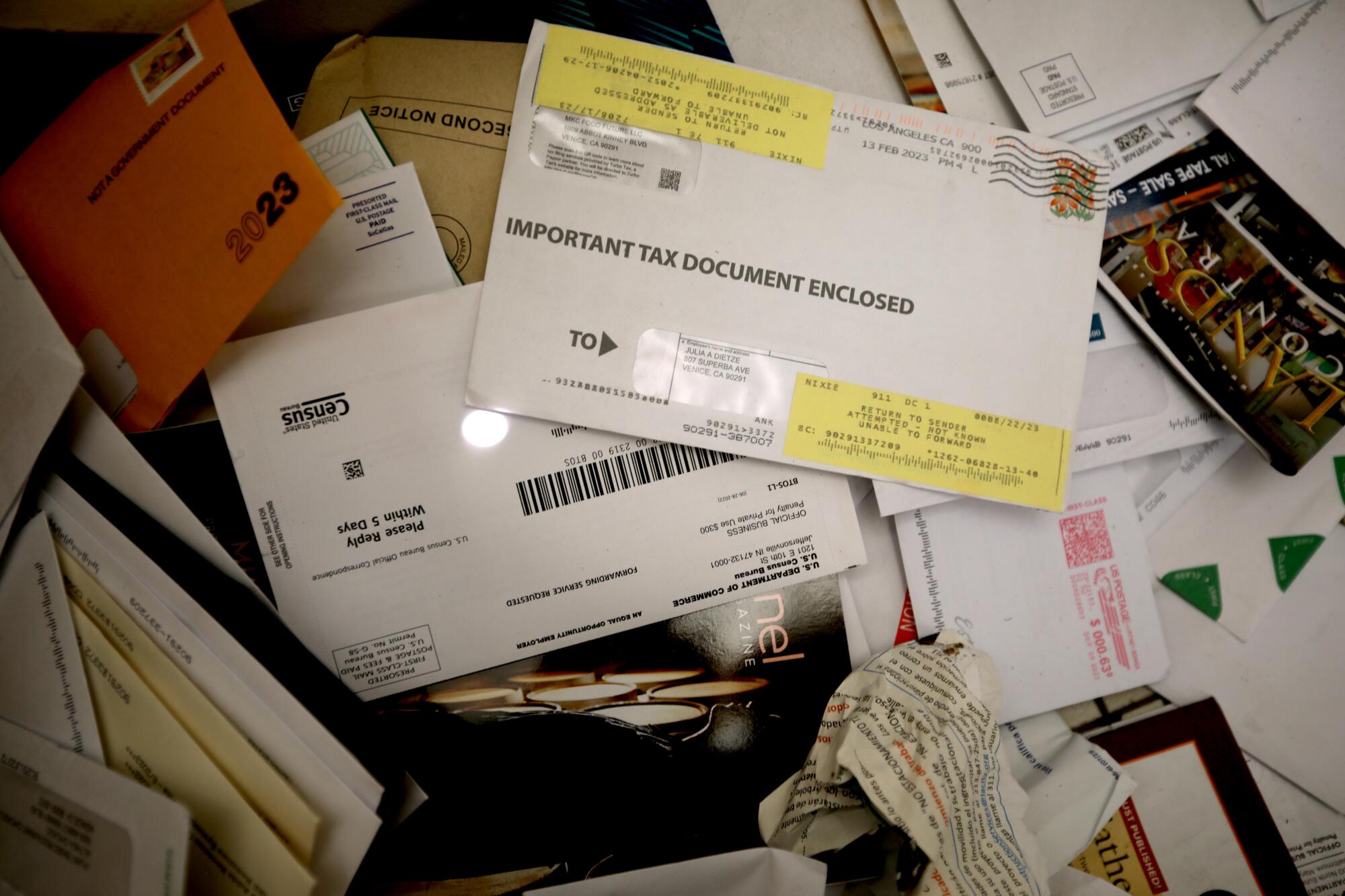
“We tried to find out: Why are vendors not getting paid? Why can’t we order more wine? Why don’t we have valet out front? Because they haven’t gotten paid,” said Valdez, the former manager at Plant Food + Wine, who quit in 2022.
An April filing in the Chapter 11 bankruptcy of the company behind Plant Food + Wine in Venice listed suppliers of wine, linens, produce, propane and other items that, in total, were due more than $50,000.
Kenney said that vendor debts need to be taken in context. “It might be somebody that we’d spent a million dollars with — they didn’t get those last two months [of payments]. That’s also wrong, but it doesn’t tell the whole story to say we just didn’t pay.”
Even as Kenney and his companies were not paying their bills, four LLCs with ties to his restaurants — among them Plant Food + Wine — received a total of almost $1 million in loans via the Paycheck Protection Program that was rolled out during the COVID-19 pandemic, records show. All but about $16,000 was forgiven.
Kenney said that the PPP money “certainly helped, but it wasn’t enough.”
Amid this financially challenging stretch, Kenney began renting a Mar Vista home for $17,000 a month. The 5,400-square-foot residence, which he leased in early 2021, features high ceilings and an expansive kitchen.
“His house … looks like it’s out of a magazine,” said George Infante, former chef of New York’s Sestina, which closed in 2022. “I’m like, ‘Hey, he’s got money.’”
Infante, on the other hand, said he had two bank accounts closed because so many of his paychecks bounced. And he said he was chastised by a person in management when he asked about it.
“He would literally yell at me and make me tear up,” Infante said. “He would say, ‘What the f—, George! I don’t know, I’m going through the same issue. Leave me the f— alone.’”
An eviction in Venice
Kenney began devising plans for the next stage of his career about two years ago — when he said that it became clear that owning and operating restaurants was not the best model for him. “I don’t wake up in the middle of the night often, but I did,” he said. “And I was just like, ‘This doesn’t seem right.’”
Kenney started sketching out a new company that he said would play to his strengths by focusing on licensing and branding deals.
But even as Kenney moves forward with Ascention Brands, his legal reckoning continues on several fronts.
A handful of legal opponents are trying to collect on judgments they’ve won against Kenney, court records show. And Glen Irani, landlord of the chef’s Mar Vista home, filed a lawsuit in September seeking to evict him over his alleged nonpayment of rent totaling $70,000.
Kenney said he’d resolved the dispute and recently held a fundraiser at the property.
But court records show that the case is ongoing, and Irani told The Times that he continues to pursue Kenney’s eviction, adding: “I don’t feel like I have a personal belief in the guy anymore.”
Only one L.A. restaurant still bears Kenney’s mark: Plant Food + Wine at the Four Seasons Hotel, which debuted in July. But the chef doesn’t own the eatery. Instead, the hotel struck a licensing deal to open it.
Plant Food + Wine is arguably Kenney’s strongest brand. But at its original location in Venice, he had spent the last few years in a pitched legal battle with landlord GMB Ventures, which sued three of Kenney’s companies in 2022 for allegedly not paying about $41,000 in rent.
The defendants denied the allegations, according to a court filing. Kenney called GMB an “aggressive landlord” that “went after everything.”

In June, a judge awarded GMB past due rent and damages totaling about $215,000. By then, the Venice restaurant had already closed. And Matthew Kenney Cuisine, which was headquartered at the same building, had departed too.
On a recent visit to Kenney’s former headquarters, a pile of mail lay on the ground amid dead leaves and other detritus behind the building. Most of the envelopes were unopened. But one had been breached.
Beside it, a 45-page document was smudged with dirt, the words obscured in places by dark stains. Still, it was easy enough to read the header: “SUPERIOR COURT OF THE STATE OF CALIFORNIA.”
It was a legal filing — by yet another landlord alleging one of Kenney’s companies owed it money.
Times researcher Scott Wilson contributed to this report.
More to Read
Sign up for Essential California
The most important California stories and recommendations in your inbox every morning.
You may occasionally receive promotional content from the Los Angeles Times.

